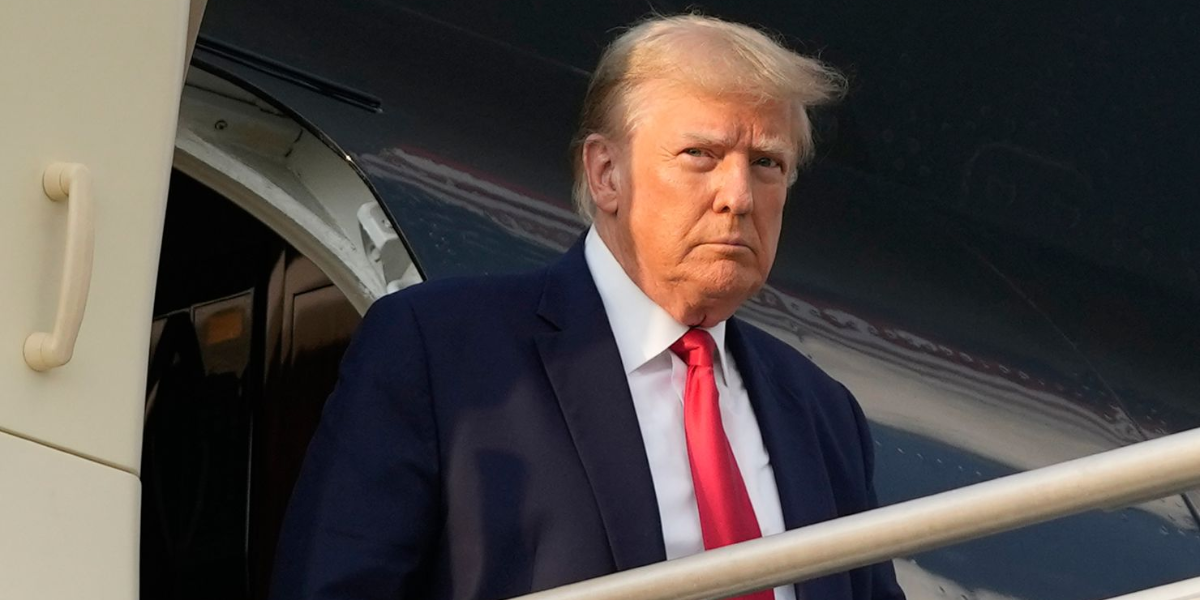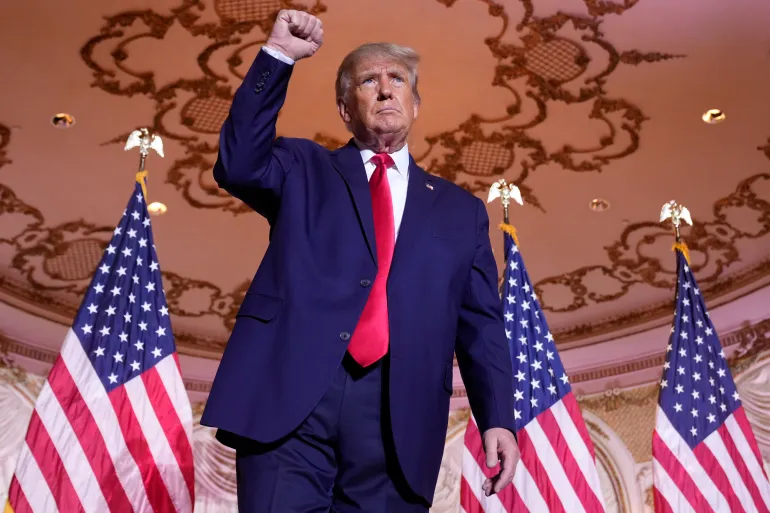A US judge has decided that Donald Trump is not immune from prosecution and can be charged with conspiring to rig the 2020 election.In the historic court case, Mr. Trump had argued that his actions as president qualified him for immunity from prosecution.
However, that assertion was refuted by a unanimous decision in Washington, DC, on Tuesday.It is a blow for Mr. Trump, who has been fighting numerous cases for years while claiming presidential immunity.
The three-judge panel from the US Court of Appeals for the DC Circuit stated in its opinion that it “could not accept former President Trump’s claim that a president has unbounded authority to commit crimes that would neutralize the most fundamental check on executive power—the recognition and implementation of election results.”It stated: “For the purpose of this criminal case, former President Trump has become citizen Trump, with all of the defences of any other criminal defendant.”
Even if Trump lost in court, his delay tactic still worked.
Trump campaign spokesman Steven Cheung stated in a statement shortly after the judgment that the former president “respectfully disagrees with the DC Circuit’s decision and will appeal it.”

In the end, the matter might reach the conservative-dominated Supreme Court, which has a 6-3 majority. Mr. Trump can submit an appeal until February 12th.
“If immunity is not granted to a president, every future president who leaves office will be immediately indicted by the opposing party,” Cheung stated. “Without complete immunity, a president of the United States would not be able to properly function.”A few of Mr. Trump’s most outspoken supporters predicted that the Supreme Court would overturn the ruling.
Potential vice presidential running mate for Mr. Trump, New York representative Elise Stefanik, stated that the decision “sets a dangerous precedent, violates our Constitution, and threatens the very bedrock of our nation” should he win the Republican nomination this year.The US government’s three separate branches are meant to act as a check on one another, but the three-judge panel stated that giving a president immunity would jeopardize this balance.
“Former President Trump’s alleged efforts to remain in power despite losing the 2020 election were, if proven, an unprecedented assault on the structure of our government,” they stated.”Former President Trump’s stance would collapse our system of separated powers by placing the president beyond the reach of all three branches,” the memo stated in a strongly worded part.
“We cannot accept that the office of the presidency places its former occupants above the law for all time thereafter,” the three justices, two of whom were appointed by Democrats and one by Republicans, penned.The 77-year-old Mr. Trump is accused by US Special Counsel Jack Smith of attempting to rig the 2020 election in order to dethrone Joe Biden and of engaging in fraud to maintain his position of power.
The trial in that case was originally set for March 4th, but it was postponed while the immunity claim was decided. Should the matter come before the nation’s top court, it might be postponed for several weeks or perhaps months.
The Supreme Court may decide to resolve the immunity dispute immediately, deny such a request, or place a hold on the decision made by the lower court. The justices would decide by June if it choose the third alternative.
However, well-known attorney Neal Katyal, who has represented clients before the Supreme Court, foresaw on X (previously Twitter) that the case would not be heard.”Trump’s argument is so weak and the Court of Appeals decision so thorough and well done, I can see SCOTUS voting not to hear it,” he stated.

Legal experts stated that the 57 pages of the well crafted appeals opinion, filled with numerous judicial cites and historical allusions, conveyed a very strong message.
The Court of Appeals stated, ‘You’re not even close, Trump,’ in a very courteous and detached manner. BBC News was informed by veteran federal prosecutor Patrick Cotter that “none of these arguments pass the laugh test.”
The crux of the argument put up by Mr. Trump’s attorneys was that criminal procedures cannot be brought against a president who Congress has not found guilty of impeachment. They pointed out that although the House of Representatives impeached Mr. Trump, the Senate never found him guilty.The judges concluded that this view “still would leave a president free to commit all manner of crimes with impunity, so long as he is not impeached and convicted” in their decision on Tuesday.







